- Topic:
- Stories
- Created at:
Kalsang and Tenzin drive the pottery business in the “Melting Pot”
- views count3K
- likes count403
- comments count0
- bookmarks count2

Kalsang, a Tibetan potter who came to the US from India, worked for some years for New York City jewelry brands, before turning back to pottery, his true passion.
With the help of his wife and partner Tenzin Tseyang Gonsar, who manages the business side of things, Kalsang is able to focus on making inspiring artsy dishes, plates and cups of clay.
“My artwork celebrates the relationships of my hands with a wheel,” - says Kalsang who opened a pottery home studio in Woodside.
Running a business is not easy, which is why we asked Tenzin to help us understand how they manage their work and life in America, coming from an immigrant background.
Can you please tell us a bit about moving to the US?
Kalsang and I are both Tibetan refugees, born and brought up in India. When opportunity arose, we both immigrated to the United States. Here we established our own small business and called it “Kalsang Pottery”. Kalsang is the sole potter who crafts all our products, and I manage the business with all its intricacies.
What surprised you when you moved here?
While there were a lot of times we would have “cultural shock" moments when we first arrived in the US, the thing that most stood out was the abundance of materials, and the wastage. Items like paper, plastic and even food are just thrown away everywhere, all the time. But now, after spending more than a decade in the US, we are used to these things, though we continue to try to live our life in a simple and meaningful way.
Running your own business in the US? Oxygen will help you succeed.
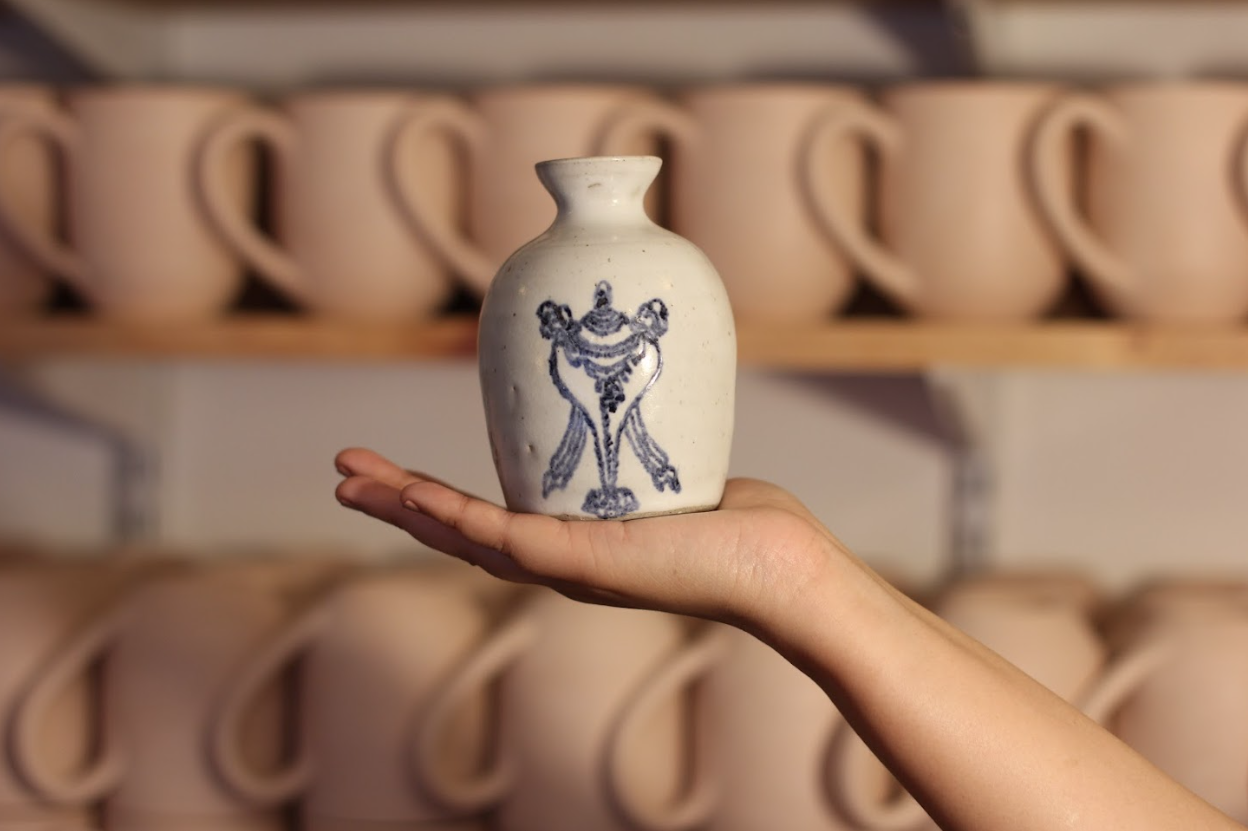
Could you share some key challenges you faced during the initial stages of setting up your business in a new country?
We ventured into our business, by accident without any hard core plans or strategy. Kalsang was always very passionate about his art of pottery making but what started as a hobby during the pandemic, consumed him.
Once his passion transformed into what we saw as “inventory”, the only way we could move forward was through selling it, which meant starting a business.
I began networking with other businesses and organizers to identify avenues to sell Kalsang’s functional art pieces. I looked into pop-up opportunities and market spaces and set up our website and online store to sell directly to people.
Neither of us had any prior knowledge about doing business and we had to learn everything on our own - from setting up business structures or doing taxes, from communicating with individual customers to boutique store owners to discussing wholesale opportunities.
We had to learn a lot in a short span of time and thankfully, we were able to start slow and gain momentum without much hardship.
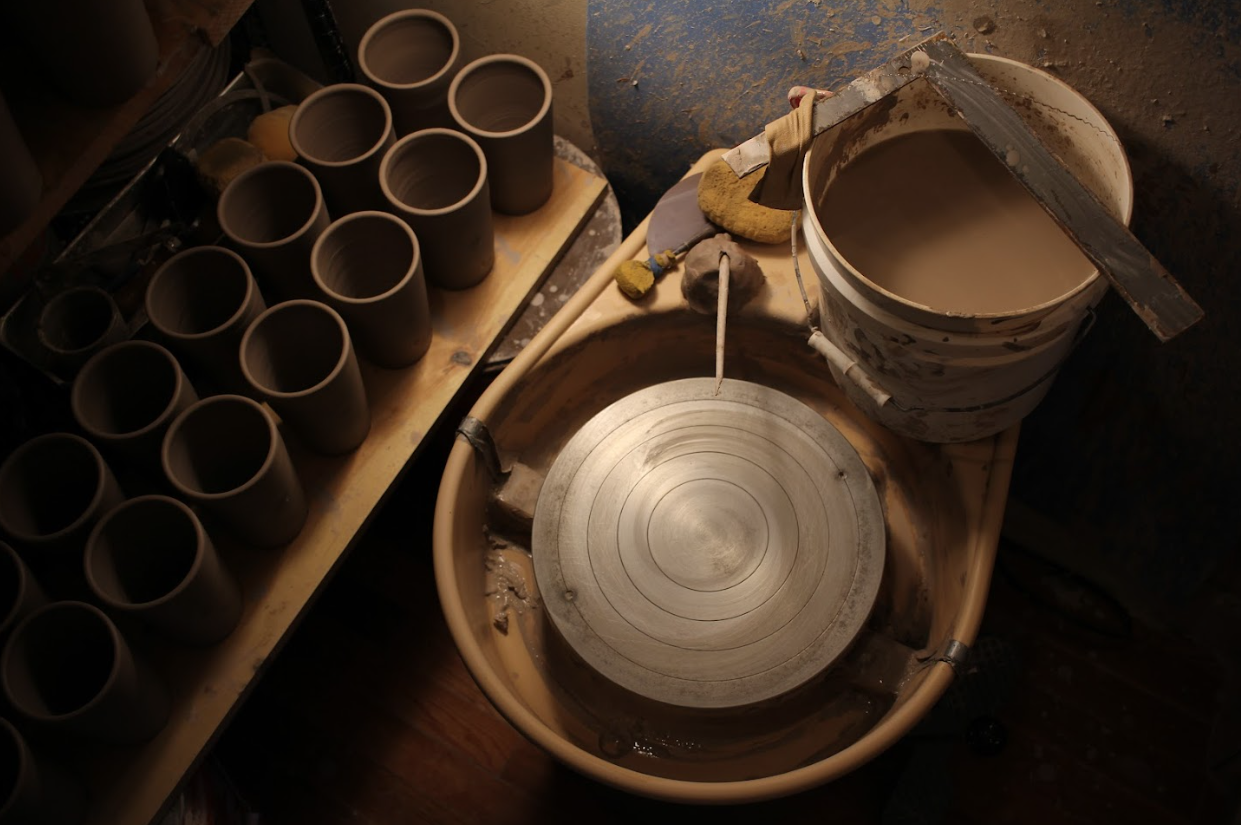
How did you navigate the legal and regulatory requirements when establishing your business in the U.S.?
Both of us are educated people and we did independent research on all legal and regulatory requirements, and also consulted with people in our network to navigate these avenues.
What resources or support networks did you find particularly helpful in your entrepreneurial journey?
I would say, most importantly, support and inspiration from each other - a belief that we can do it! Also, our family and friends were a huge help in encouraging us and spreading the word.
Were there any financial or funding challenges and how did you secure the necessary capital for your business?
So since we started small, we did not have to look anywhere for funding support. We put our own savings into the initial stage and invested the profit back into the business.
We are still in the early stages of our business: there is still a lot more to buy, a lot more to do, and a lot more to plan and organize in our business. We have big plans! But one step at a time.
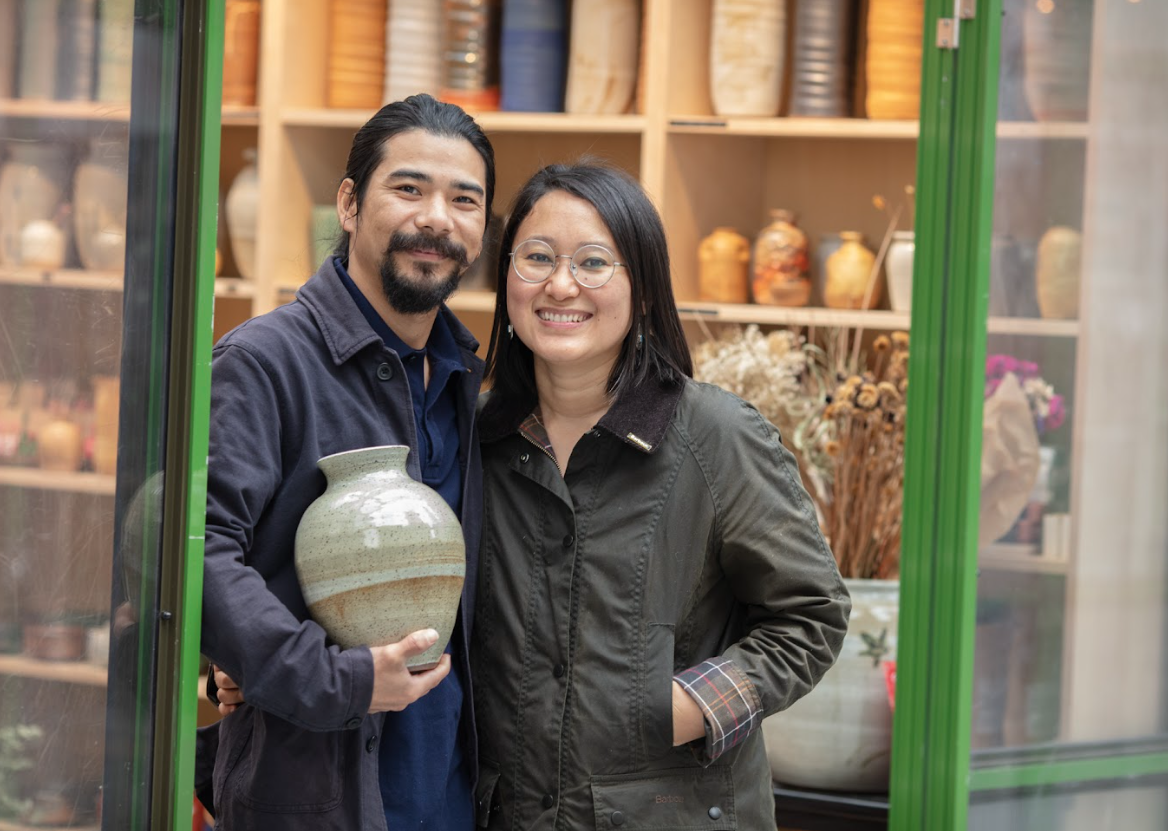
What makes your pottery special and what are your unique selling points?
Our pottery is unique because everything is handmade and hand thrown on the potter’s wheel by Kalsang himself. It's also practical, so everything is microwave and dishwasher safe.
A lot of people tell us that there is a unique aesthetic value in our products and ask us, “What kind of pottery is it?” They also ask Kalsang, “What are your inspirations while making the pottery?”
I think our pottery showcases the uniqueness of our own identities. We also take inspiration from British, Korean, and Japanese pottery. We read a lot and learn about the history of pottery from each of these different cultures; we delve deep into understanding the chemistry of the glazes and the clay materials.
Finally, what ends up being created, I think, is an amalgamation of all these personal and inspired identities. Contemporary yet classic, bright yet subtle, aesthetic yet functional. Also, people see us as this friendly and warm couple that oozes a lot of positivity. So I think the unique selling point would culminate in all of these qualities.
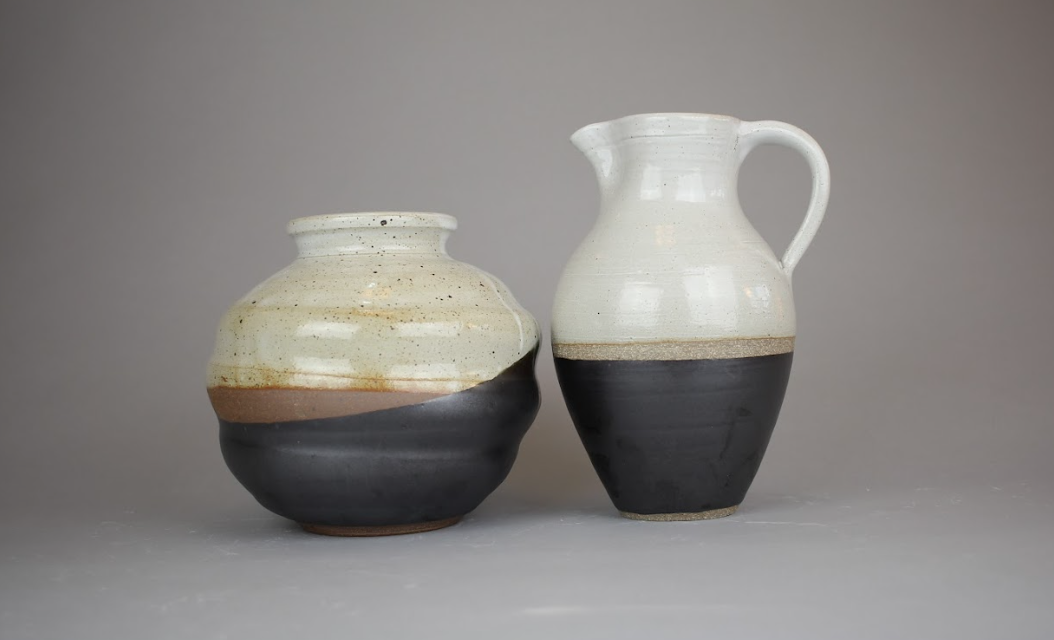
How did you build a customer base and establish trust within the local community?
We started doing pop-up markets, holiday markets, street fair festivals, and participating in local community festivals. We participated as vendors. We were very confident about our products and knew that people would like our pottery.
Wherever we went, we would socialize the announcement on our Instagram profile and our website. Most of our customers are loyal customers - they follow us on instagram and wherever we do pop-up markets, they come and buy more. I think people see and feel the love we have put into our products.
What marketing channels do you use?
I spend a lot of time thinking about how to market our business. Till now, we have mostly been using Instagram for our marketing efforts. We do our own product photoshoots, post them, and write meaningful and poetic captions. We make Instagram reels showing how these pottery pieces are made.
We engage with our followers through different features, we do giveaways, and live videos.
Every year, we create one artist spotlight documentary video. We participate in artist conferences and gatherings. However, word of mouth, through our existing clients has been very effective in putting our business out there.
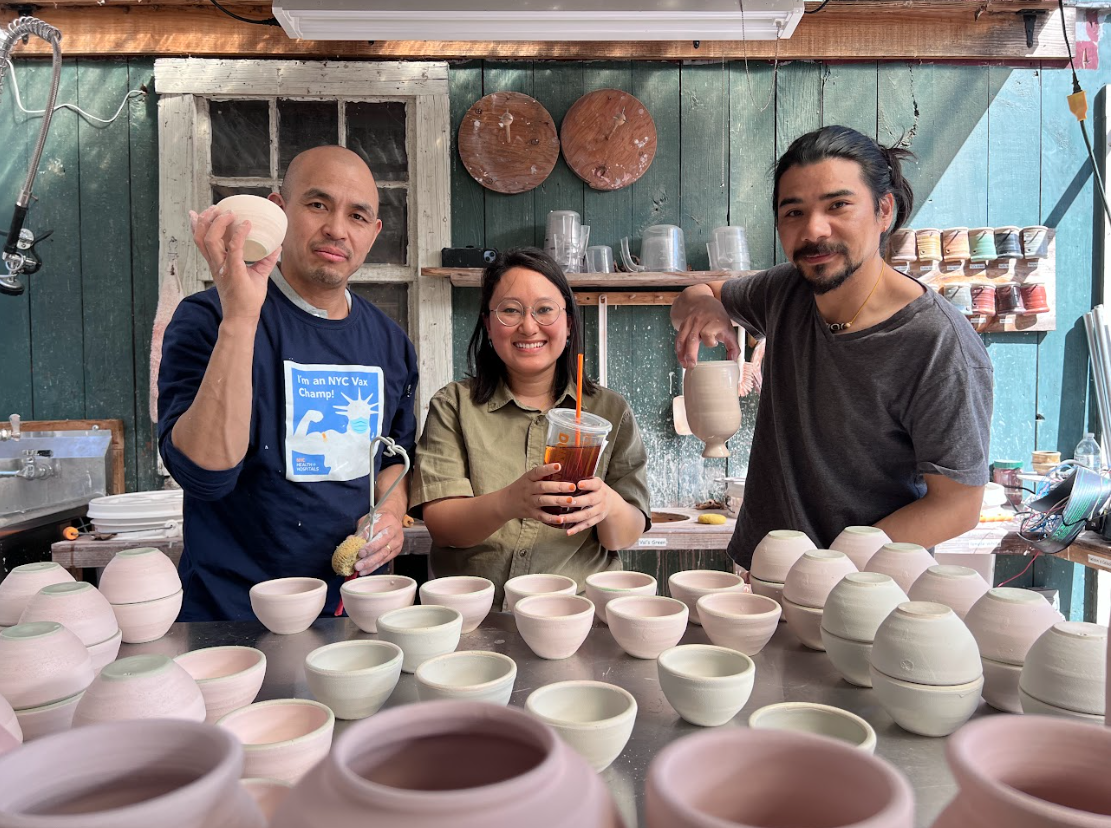
Can you share any tips for networking and making valuable business connections as immigrant entrepreneurs?
Kalsang and I are both introverted people and usually do not like socializing and networking much. But we do understand that for our business to do well, we must get out of our comfort zone and network.
What I can say is that whatever we do, whoever we communicate with, we do with full sincerity and goodwill. I believe in providing value not just in our pottery but also in our communication with customers or people who appreciate us.
What advice would you give to other immigrants who aspire to start their own businesses in the United States?
One piece of advice I would give to new immigrant businesses is to research your market well. You should know what will sell, where it will sell, and who will be the person to buy the products.
Depending on this data, target your products and positioning.

What would be the one piece of advice you would give to other artisans or entrepreneurs thinking of taking the jump?
I think I can speak on Kalsang’s behalf as an artist, when I say that it is very important for the artist to remain true to his art. Artists must have their own solitary breathing space that is unadulterated by the commercial side of things. If you want to remain a true artist, spend your effort and energy on developing your craft and becoming a better artist.
However, if you are more focused on becoming an entrepreneur, then you should be involved in the logistics of business and numbers. Whatever it is, the market is out there. You have to take the first jump and strive through!
|| Alex Rosenfeld is a business & culture reporter based in New York, NY. He was Esquire editor, and wrote for Forbes, National Geographic, Columbia Journalism Review and other leading media outlets. Alexander serves as Oxygen Communities Editor.